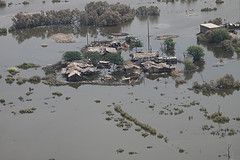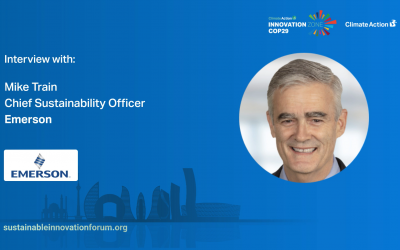Adaptation Fund set to add to key foreign support in Cancun
A UN fund set up under the Kyoto Protocol could help to deliver on requests from developing nations and guide the attainment of an agreement in the upcoming UN convention on climate change.

A UN fund set up under the Kyoto Protocol could help to deliver on requests from developing nations and guide the attainment of an agreement in the upcoming UN convention on climate change.
The fund could become one of the main methods for providing support to poorer nations as part of a new international deal, according to the chairman of the fund.
The decision is a move towards meeting requests for foreign aid made by poor countries in Copenhagen. In helping them reach their green targets, it is anticipated that a collective agenda be reached. Executive Secretary of the UN Framework Convention on Climate Change (UNFCCC), Christiana Figueres, said climate aid is the "golden key" to progress in Cancun. The international conference on climate change will be held from 29th November to 10th December.
Farrukh Iqbal Khan, a senior Pakistan official, said in an interview with Reuters, that support was building for proposals that would see the UN's existing Adaptation Fund manage some of the $100bn a year of climate financing that has been pledged as part of the Copenhagen Accord.
In the 10th Conference of Parties (COP10) in Nagoya, Japan, which focused on biodiversity, Mexico insisted that all decisions are subject to funds available. The issue of how to raise and manage climate financing to help developing nations cope with the impacts of climate change are expected to be central to the upcoming COP16. In addition, the ability to adhere to promises made in Copenhagen is recognised as key towards reaching an international climate change treaty.
"The Adaptation Fund has grown after a great deal of effort over many years….it is up and running and is an independent, international entity," Khan told Reuters.
The Adaptation Fund announced its first deal last week, awarding $8.6 million to a project fighting coastal erosion in Senegal. In light of a new two per cent levy on UN-approved emission reduction projects in developing countries, it is expected to raise $450 million by 2012.
However, some nations are anticipated to voice concerns regarding proposals to expand the Adaptation Fund, drawing on funds raised through proposed new mechanisms, such as a levy on aviation or shipping. A number of developed countries have also reportedly expressed apprehension following their representation on the Adaption Fund's board, about two-thirds of which come from developing nations.
Despite positive ambitions, the fact that the fund was set up under the Kyoto Protocol, which the US has not ratified, brings trepidation with regard to the role it can play in any new treaty. According to some industrialised countries, its success will also depend on whether the World Bank offers to play a key role in distributing climate financing.
A fund to manage aid to poor nations, as well as new ways to share clean technology and a strategy to protect tropical rainforests, forms the overall plan for the upcoming COP16. In addition to the Adaptation Fund, other mechanisms will also be put in place.
Running alongside COP16 will be the UN Reducing Emissions from Deforestation and Forest Degradation (REDD) Programme, held on the 2nd December. The UN-REDD Programme will push for synchronising normative international frameworks, with a focus on responsible use of the world's resources. This will take into account all stakeholders, including indigenous people, with an aim to harmonising climate efforts.
So far, during its fifth Policy Board meeting in Washington, D.C. from 4th to 5th November 2010, the UN-REDD Programme approved US$15.2 million in funding for national programmes in Cambodia, Papua New Guinea, Paraguay, the Philippines and Solomon Islands.
The development of a range of funding mechanisms, with the Adaptation Fund promising a central position in Cancun, offers some encouragement towards supporting national governments in preparing and implementing climate strategies. Further negotiations in Cancun are anticipated to deal with remaining concerns so that a treaty may be reached, and processes can be further implemented.
Author: Marianna Keen | Climate Action
Image: DVIDSHUB/ Flickr



_400_250_80_s_c1.jpg)


